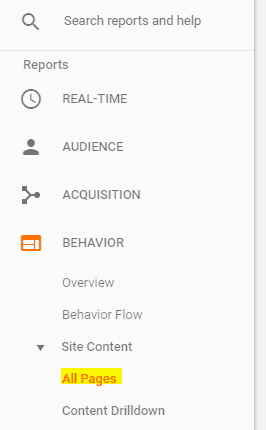We’ve written many times about the importance of ‘evidence-based marketing’. We also know that most advisers and planners are busy people with only limited time to devote to marketing. Consequently, if it’s time to give your website a spring clean, it makes sense to focus on the most popular pages. To help you do just that we’ve analysed adviser and planner websites to understand which receive the most visitors.
The most popular pages are:
- Home: Frankly, that’s no surprise. In fact, our research found only one site where the homepage wasn’t the most popular. Our checklist; “27 things your website should have on its homepage” will help ensure your homepage is as effective as possible.
- Contact: Your website has a crucial role to play in creating new enquiries. Contact pages being the second most popular is therefore good news.
- Who we are / about us pages: These types of pages should include a variety of information about your business, particularly the things which set you apart from other firms. It’s your chance to impress, so don’t be shy.
- Team page: Prospective clients want to know whether you have the specialist knowledge, expertise and experience to solve their financial problems. Naturally, they will also want to trust and like their adviser too. That starts online, through pages such as this, and develops as you get to know each other.It’s natural for a prospective client to want to know more about you and your team, so we also recommend including individual profiles for each member. Again, if constructed correctly, these pages also give each adviser or planner an opportunity to show their expertise, knowledge and experience. Google will love the extra content too.You can see an example of one of our latest team pages by clicking here.
- What we do: In many respects this is similar to the team page; people want to know that your business can solve their financial headaches or help them plan for the future. This is also your chance to start explaining the concept of financial planning, to an audience for whom it may be a new concept.
How does yours match up?
Google Analytics will tell you.
For those people who’ve not been reading our blogs, Analytics is a free tool which will help you understand how your site is performing. The screen shot below shows where you will find your top five pages:

Our 2017 offer still stands; if you don’t have Google Analytics set up on your website we’ll add it free of charge for you and then talk you through the results.
Just drop an email to hi@theyardstickagency.co.uk and we’ll do the rest.
Grab a coffee, you’ve now got a couple of jobs
Once you’ve consulted Google Analytics…
Check engagement levels
It’s perhaps only natural to focus on the headline visitor numbers. However, engagement levels are equally important; there’s no point sending people to your website if they don’t hang around.
Last week we wrote about the importance of improving visitor engagement. Initially at least, these can be measured by looking at the following metrics for each of your top five pages:
Time on page: The more time someone spends on your website, the better
Pages per visit: Engaged visitors will view a larger number of pages
Bounce rate: There are exceptions, but generally you want your bounce rate to be as low as possible
If you missed it, you can read last week’s blog, which explains 12 ways to improve visitor engagement, by clicking here.
Review missing pages
Does your website include each of the top five pages?
If not, you’re missing a trick. After all, our research shows they are what visitors are looking for. Why not give them what they want?
That means finding time (and perhaps the inclination) to write and build any missing pages. And if you don’t have individual profile pages for each member of your team, that should be added onto your to-do-list too.
PS.
We’ve written many times that your website shouldn’t be discussing products. Visitors to your site will almost certainly have a financial problem, issue or challenge. They want to know if you have the solution, not what a pension or an ISA is.
Our research showed that the least popular pages are those which deal with:
- Savings
- Investment
- Pensions
- Tax planning
- Protection
We rest our case!
PPS.
Still not convinced? Our blog, “Revealed, the five pages you shouldn’t include on your website”, explains more. You can read it by clicking here.



